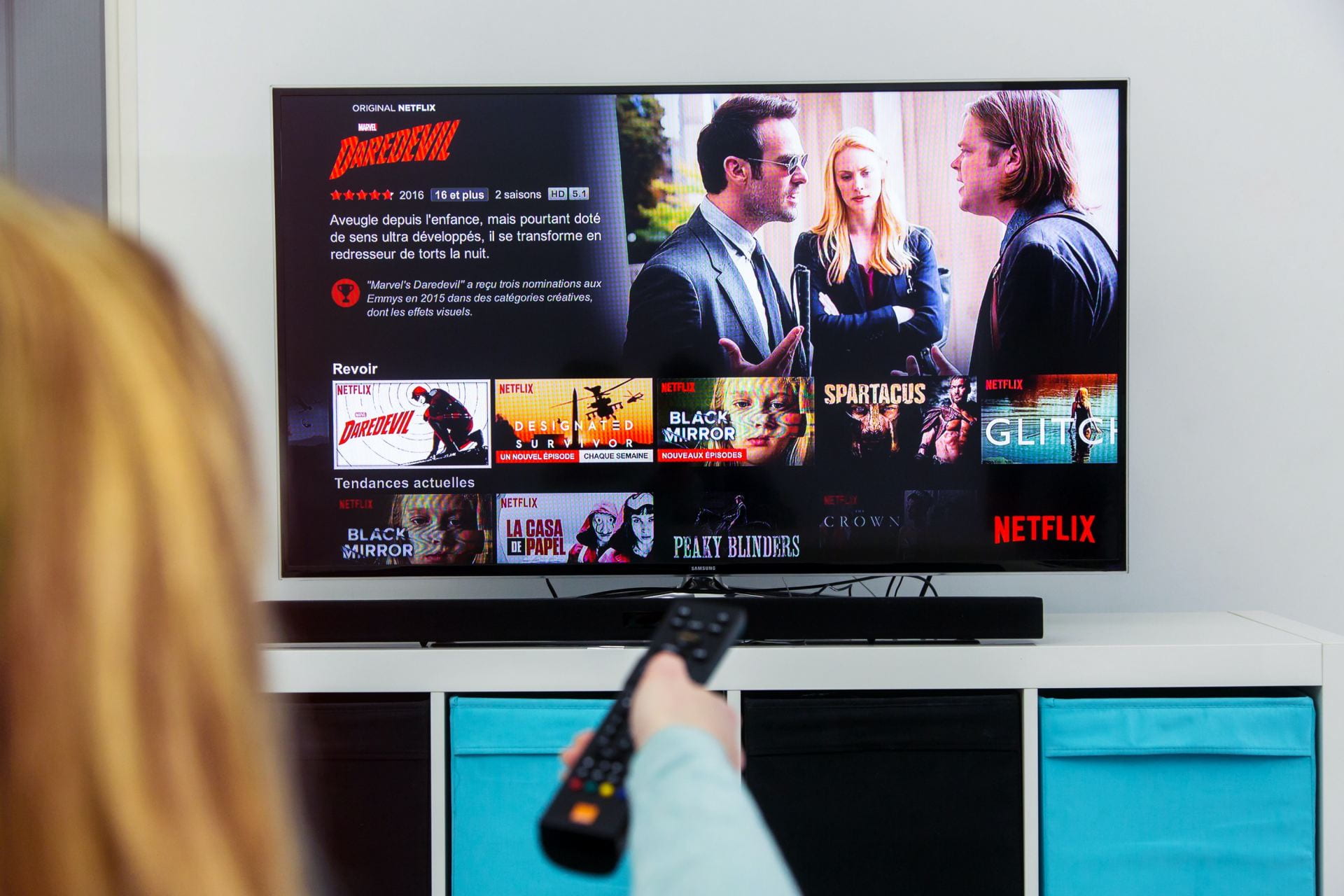trends
The complicated promise of Amazon’s space internet
At the top of an Amazon press release sent out this week , there’s an uncanny image. It’s a rocket imprinted with an American flag and, above that, Amazon’s smiling logo, blasting off to the heavens. The company is officially taking its business to space, and Jeff Bezos isn’t even providing the ride.
Is Your Exoskeleton Ready for Primetime?
While at the mention of exoskeletons—or wearable mobile apparatuses, as they are called in marketing brochures—scenes of Tony Stark in his Iron Man armor elegantly zipping and hovering start to flicker in our minds, we often forget the test scenes where he struggles to control his flight and shoots himself straight into a wall.
Remote work is bringing the city to the suburbs
In the spring of 2020, many of the typical draws to cities — plays, nightclubs, restaurants — shut down. Space took on a premium, as small apartments close to others felt particularly claustrophobic. All of a sudden, a big home in the suburbs for the same monthly price as a tiny apartment in the city got a whole lot more attractive. The lifestyle also seemed safer, as you could travel in the isolation of your own vehicle and play in personal green spaces with less fear of infection. More companies than ever are allowing employees to work from home, and studies say that between 13 and 45 percent of the workforce is now remote some or all of the time.
What Silicon Valley Gets Wrong about Innovation
To generate local, inclusive prosperity, cities must think beyond tech accelerators and science parks and instead embrace a wider range of innovation strategies.
Desperate for Workers, Restaurants Turn to Robots
They can make French fries, mix drinks and even clean toilets, and they never ask for a raise. But they also break down.
A piece of cloth to clean your Apple devices will cost you $19
The Apple-branded cloth, made of unspecified nonabrasive materials, will be available to purchase separately. Other than having an Apple logo stamped on it, it’s unclear how the cloth is any different from a typical microfiber cloth that you can get for a fraction of the price.
Source: A piece of cloth to clean your Apple devices will cost you $19
How Netflix affects what we watch and who we are — and it’s not just the algorithm
The possibilities of streaming have inspired a new “classificatory imagination”. I coined this term to describe how viewing the world through genres, labels and categories helps shape our own identities and sense of place in the world.
While 50 years ago, you might have discovered a handful of music genres through friends or by going to the record shop, the advent of streaming has brought classification and genre to our media consumption on a grand scale. Spotify alone has over five thousand music genres. Listeners also come up with their own genre labels when creating playlists. We are constantly fed new labels and categories as we consume music, films and television.
Source: How Netflix affects what we watch and who we are — and it’s not just the algorithm
The next big thing in podcasts is talking back
“Podcasting has always been this sort of one-way street,” says Mike Mignano, head of creation platform at Spotify. “A creator publishes content; the audience listens; that’s it.”
Now, however, interactive elements are making their way into the space. Spotify is giving all its Anchor creators the ability to make polls and Q&As and is testing interactive ads. Other apps, like Facebook, are trying things as simple as just allowing listeners to leave comments — a mainstay YouTube feature — while podcasting apps in China already allow listeners to build “listening circles” and “discussion groups.”
Slackers of the World, Unite!
But even if you don’t use Slack, or something like it, you live and work in the world Slack helped create. It’s a world where openness and transparency are prized; where work is something we are always kind of doing; where who we are at the office and who we are outside it are closer than ever before; where all of these dynamics mean that sometimes things go very wrong, especially for people in power.
Source: Slackers of the World, Unite!
Digital gender gap: men 50% more likely to be online in some countries
A failure to ensure women have equal access to the internet has cost low-income countries $1tn (£730bn) over the past decade and could mean an additional loss of $500bn by 2025 if governments don’t take action, according to new research .
Source: Digital gender gap: men 50% more likely to be online in some countries – report
The Fight to Rein in Delivery Apps
Prior to the coronavirus pandemic, the business model of food-delivery apps went largely unconsidered by the diners who relied on them for midday kale salads and late-night taco feasts. Platforms such as Uber Eats, DoorDash, and Grubhub often charged restaurants commissions of up to thirty per cent per order, and they were evasive about how (and how much) their couriers were compensated. But for most restaurants delivery comprised only a fraction of total sales. Then the covid-19 pandemic turned virtually all restaurants into takeout-and-delivery-only businesses, and the brutal economics of the delivery apps became a matter of life-or-death urgency, for both the restaurants selling food and the couriers delivering it.
Streaming Video Betting Big on Legalized Sports Gambling
Live sports and gambling have a long co-dependent relationship, which is expanding beyond casinos to over-the-top video. The new field of dreams for incremental billions in revenue began in 2018 after the U.S. Supreme Court struck down the federal anti-sports-gambling law.
Source: Streaming Video Betting Big on Legalized Sports Gambling
Ghost Kitchens is the future of fast food
I visited the first Ghost Kitchens restaurant in a New York Walmart. Ghost kitchen companies have exploded over the last year and a half as delivery grew. Virtual restaurants cut down on labor and real estate costs, making them appealing to owners.
What is the metaverse, and do I have to care?
In recent months you may have heard about something called the metaverse. Maybe you’ve read that the metaverse is going to replace the internet. Maybe we’re all supposed to live there. Maybe Facebook (or Epic, or Roblox , or dozens of smaller companies) is trying to take it over.
The Internet Is Rotting
Too much has been lost already. The glue that holds humanity’s knowledge together is coming undone.
Source: The Internet Is Rotting
‘Squid Game’ Is, Unfortunately, the Perfect Show for Our Current Dystopia
The Korean survivor-game series skewers capitalism, chance, and base human instinct in a brutalizing modern parable. Naturally, it’s on track to be Netflix’s biggest hit in history.
Source: ‘Squid Game Is,’ Unfortunately, the Perfect Show for Our Current Dystopia
Climate Change Is the New Dot-Com Bubble
The free market has plenty of grandiose ideas about how to fix our broken planet. There’s just one problem: We can’t afford another bust.
Google search’s next phase: context is king
Google is going to begin flexing its ability to recognize constellations of related topics using machine learning and present them to you in an organized way. A coming redesign to Google search will begin showing “Things to know” boxes that send you off to different subtopics. When there’s a section of a video that’s relevant to the general topic — even when the video as a whole is not — it will send you there. Shopping results will begin to show inventory available in nearby stores, and even clothing in different styles associated with your search. will ask more detailed and context-rich questions.
America as an Internet Aesthetic
@berryianeits our first time omg everything was so aesthetic!! leave me starbies recs im new ˊᵕˋ)੭ ##aesthetic##aestheticsnacks##snackhaul##animecore##americancore
TikTok’s Americancore meme critiques cultural appropriation by exoticizing the familiar. Who has the last laugh?
Source: America as an Internet Aesthetic
Inside Boston Dynamics’ project to create humanoid robots
Boston Dynamics is known for the flashy videos of its robots doing impressive feats. Among Boston Dynamics’ creations is Atlas, a humanoid robot that has become popular for showing unrivaled ability in jumping over obstacles, doing backflips, and dancing.
Source: Inside Boston Dynamics’ project to create humanoid robots









